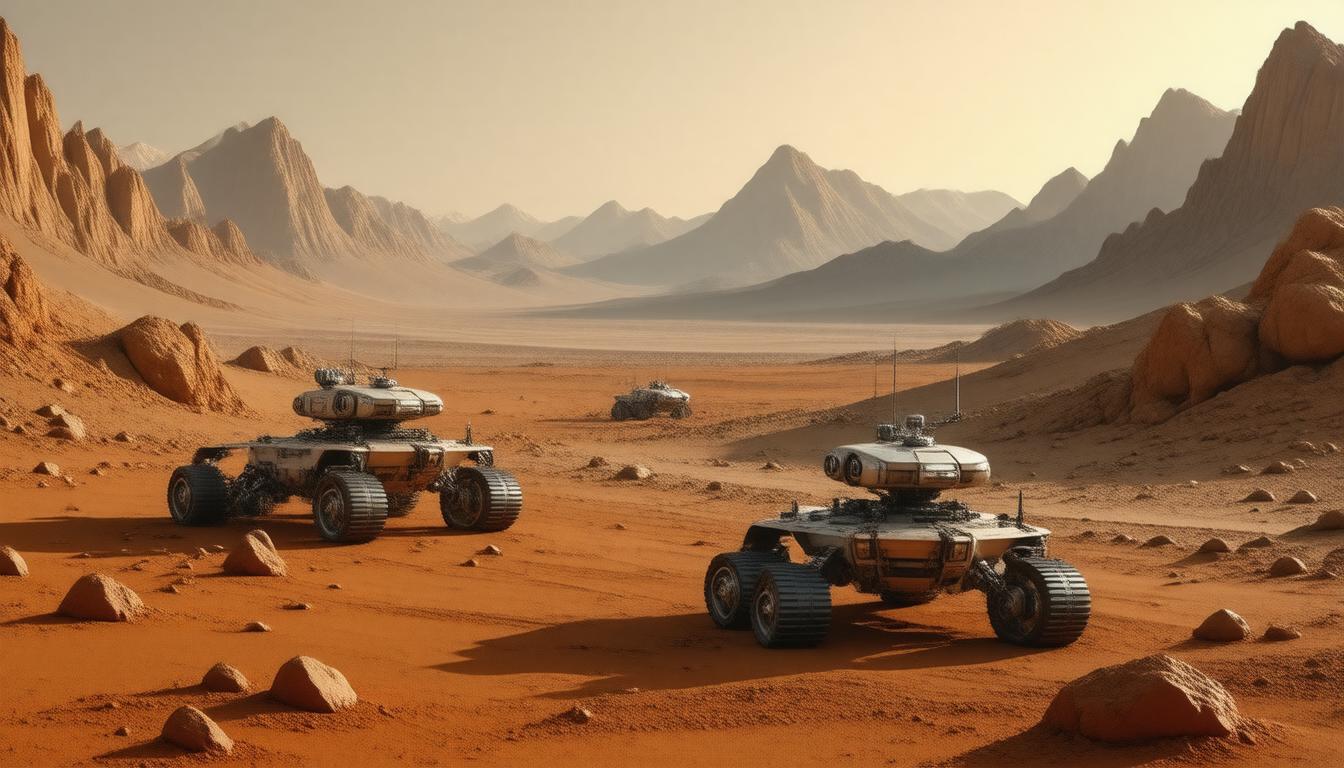Mars has captivated humanity’s imagination for centuries, and our explorations of the Red Planet have taken monumental strides thanks to the development of Mars rovers. These autonomous vehicles have profoundly changed our understanding of Mars and provided insights into potential life beyond Earth. This article explores the journey, discoveries, and future of Mars rovers.
The Evolution of Mars Rovers
Mars rovers are remote-controlled vehicles designed to traverse the Martian surface. Unlike stationary landers, they offer the flexibility to explore varied terrains, observe geological features up close, and even reposition themselves to optimize solar charging. The advent of rovers has enabled NASA and other space agencies to conduct more extensive and targeted scientific investigations.
Notable Mars Rovers
-
Sojourner (1997): Launched with the Mars Pathfinder mission, Sojourner was the first successful Mars rover. It operated for roughly three months, covering a distance of just over 100 meters and conducting essential analysis of Martian rocks and soil.
-
Spirit and Opportunity (2004-2018): These twin rovers were designed for short missions but surpassed expectations spectacularly. Spirit lasted over six years before entrapment in sand ended its mission in 2010. Opportunity, on the other hand, covered 45.16 kilometers over nearly 15 years, concluding its journey in 2019 after a dust storm disabled it.
-
Curiosity (2012-present): Launched as part of NASA’s Mars Science Laboratory mission, Curiosity continues to explore Gale Crater and Mount Sharp, studying atmospheric and geological conditions and searching for organic compounds and signs of past life.
-
Perseverance (2021-present): Landing in 2021, Perseverance is equipped with sophisticated technology to search for signs of ancient life and collect samples for potential future return to Earth. It also carries the Ingenuity helicopter, which has achieved powered flight on another planet for the first time.
-
Zhurong (2021-2022): Operated by the China National Space Administration, Zhurong marked China’s first successful Mars mission. Although its mission was planned for just 90 days, it exceeded expectations by staying operational for ten months before a Martian winter and dust accumulation led to its deactivation.
Discoveries and Scientific Missions
The primary goal of Mars rovers is to analyze the Martian terrain and search for signs of water, habitability, and past life. Key scientific missions include:
- Searching for Water: Data collected from the rovers has supported the theory that Mars had liquid water in its past, essential for sustaining life.
- Geological Insights: Rovers like Spirit and Opportunity examined rock formations and strata, revealing the planet’s geological history and climate changes over millions of years.
- Chemistry and Biology: Curiosity and Perseverance are focusing on finding organic molecules and analyzing soil samples to understand the biosignatures of ancient life.
The Future of Mars Exploration
As technology advances, the future of Mars exploration is bright. Upcoming missions aim to build on the findings of prior rovers. NASA’s Artemis program, for example, is paving the way for more sophisticated rovers and missions that could one day return samples to Earth.
The ongoing discoveries from current rovers, particularly Perseverance and Curiosity, are critical to understanding Mars’s potential to harbor life. Meanwhile, collaborations between agencies like NASA and the Chinese space agency will likely enhance our capability to explore and understand Mars even further.
Conclusion
Mars rovers represent the pinnacle of our exploratory efforts on the Red Planet. Each rover, from Sojourner to Perseverance, has contributed essential knowledge about Mars and provided new avenues for research. With the tradition of exploration underpinned by scientific curiosity, humanity continues to look toward Mars, eager to uncover its ancient secrets and potential for life. As we strengthen our technological prowess, the dream of human presence on Mars appears closer than ever.
Join Alpha Centi and give a unique boost to your career and professional profile today! [color=rgb(4, 53, 157)]https://alphacenti.org/join/[/color]


